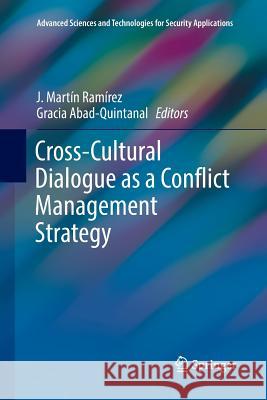Cross-Cultural Dialogue as a Conflict Management Strategy » książka
topmenu
Cross-Cultural Dialogue as a Conflict Management Strategy
ISBN-13: 9783030084059 / Angielski / Miękka / 2019 / 154 str.
Kategorie BISAC:
Wydawca:
Springer
Seria wydawnicza:
Język:
Angielski
ISBN-13:
9783030084059
Rok wydania:
2019
Wydanie:
Softcover Repri
Ilość stron:
154
Waga:
0.24 kg
Wymiary:
23.39 x 15.6 x 0.91
Oprawa:
Miękka
Wolumenów:
01
Dodatkowe informacje:
Wydanie ilustrowane











